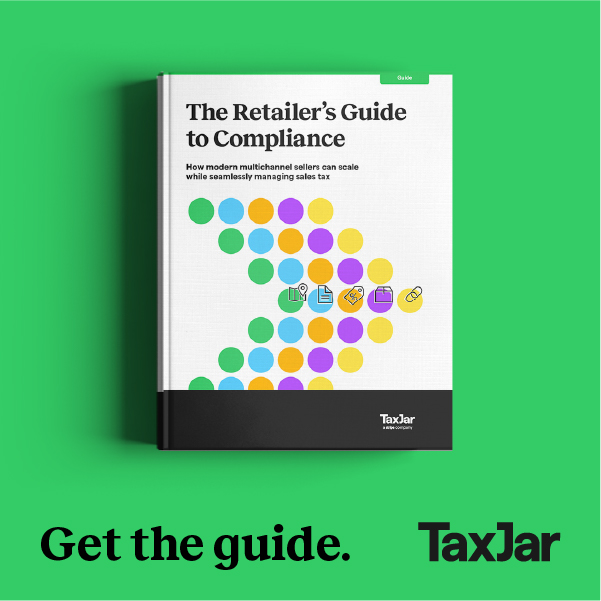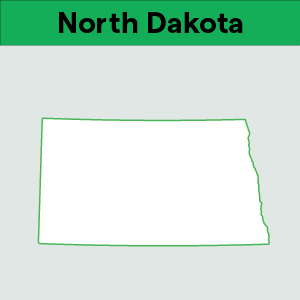New Jersey marketplace facilitator sales tax law, explained
by October 20, 2024
The state of New Jersey requires marketplaces to collect sales tax on behalf of sellers on online marketplaces like Amazon and eBay.
This means that if you sell on a platform like Amazon, then Amazon will collect sales tax from your New Jersey buyers on your behalf, and remit it to the state.
But as usual, there are always a few wrinkles here when it comes to e-commerce sales tax.
This post will explain what online sellers need to know about the New Jersey marketplace facilitator law, and answer your frequently asked questions.
Overview of the New Jersey marketplace facilitator law
New Jersey marketplace facilitator law requires that marketplace facilitators in New Jersey collect New Jersey sales tax on behalf of third-party sellers.
Sellers that have a physical presence in New Jersey, or who are otherwise legally obligated to collect and remit New Jersey Sales Tax, are unaffected by the new law.
Quick facts about the New Jersey marketplace facilitator law
- Effective date: November 1, 2018
- Threshold: This law requires that marketplace facilitators in New Jersey collect New Jersey sales tax on behalf of third-party sellers. See the Remote Sellers notice for more information.
- State law information: Read the full text of the New Jersey Division of Taxation
- Marketplaces that have adopted this law:
Frequently asked questions about marketplace facilitator laws
What exactly is a marketplace facilitator in New Jersey?
New Jersey law defines a marketplace facilitator as a person that facilitates a sale of tangible personal property, specified digital products, or taxable services by meeting at least one activity detailed in each of two lists of activities listed on the New Jersey Division of Taxation website.
Online sales platforms like Amazon and eBay are considered marketplace facilitators under New Jersey law.
Does this mean I can stop collecting New Jersey sales tax?
It depends.
Marketplace sellers are not required to collect and remit sales tax on the sale of tangible personal property, specified digital products, or services delivered into New Jersey when a marketplace facilitator is required to collect and remit sales tax on the transaction.
Marketplace facilitator laws only cover marketplaces. The state still requires that merchants collect sales tax from buyers via sales channels where the marketplace facilitator laws do not apply.
Does this mean I can cancel my New Jersey sales tax permit?
It depends.
While non-marketplace sellers are not permitted to cancel sales tax permits, they can contact the state and ask to be put on a “non-reporting” basis. Read more information for Marketplace Sellers in New Jersey here.
But first, a word of caution. We recommend checking directly with the New Jersey or a sales tax expert before cancelling your sales tax registration. This is because your business is now on the state of New Jersey books and potentially on their radar should they decide that you still have sales tax obligations in the state of New Jersey.
Final note: It’s important to assess your business before making a decision about cancelling sales tax permits. Are you in a growth stage? Do you plan to expand and think you may have New Jersey sales tax collection requirements in the future? Then you may want to hang on to your New Jersey sales tax permit rather than cancelling it and going through the administrative hassle of registering again in the future. This business decision is up to you.
Do I still need to file a New Jersey sales tax return?
It depends.
Legislation was enacted that requires certain remote sellers to collect and remit New Jersey sales tax. For sales made on and after November 1, 2018, a remote seller that makes a retail sale of tangible personal property, specified digital products, or services delivered into New Jersey must register, collect, and remit New Jersey sales tax if the remote seller meets either of the following criteria (the economic threshold):
- The remote seller’s gross revenue from sales of tangible personal property, specified digital products, or services delivered into New Jersey during the current or prior calendar year, exceeds $100,000; or
- The remote seller sold tangible personal property, specified digital products, or services delivered into New Jersey in 200 or more separate transactions during the current or prior calendar year.
A remote seller that does not meet either of these criteria does not have to register with the Division of Revenue and Enterprise Services to collect and remit New Jersey Sales Tax.
If you no longer have any sales tax to remit to the state of New Jersey, we recommend checking directly with the state to determine if you can cancel your sales tax registration.
Be cautious here. If you are registered for a sales tax permit and do not file, the state can assess penalties even though you don’t have any sales tax to remit! We have, unfortunately, talked to too many sellers who have found this out the hard way when a tax penalty bill arrives.
What do I do with any New Jersey sales tax I have already collected?
If you have already collected New Jersey sales tax from buyers, it is vital that you remit that amount to the state. The only way to get in serious criminal trouble in sales tax is to collect sales tax from buyers on the state’s behalf but keep it in your own pocket.
Does TaxJar handle this for me?
Yes.
TaxJar AutoFile handles New Jersey sales tax automatically
TaxJar AutoFile automatically compiles your sales tax data the way the New Jersey of New Jersey wants it filed. For example, many states, New Jersey included, want sellers to break down their sales tax collected interstate (sales originating in New Jersey sent to another New Jersey) and intrastate (sales made from New Jersey to New Jersey.)
If a marketplace has collected sales tax on your behalf, TaxJar reports that directly to the state so that the state is aware you have met your sales tax obligations.
If you currently AutoFile your New Jersey sales tax returns, you don’t need to do a thing.
TaxJar reports give you all the info you need to file manually
If you prefer to file manually, your TaxJar Reports also reflect what the [New Jersey Department of Revenue] wants to see on your tax return.
Also don’t worry that you will double pay. TaxJar accounts for sales tax collected on your behalf, and only shows you the amount you owe to the state out of your pocket.
Further reading on New Jersey sales tax and marketplace facilitator laws:
- TaxJar’s Marketplace Facilitator FAQ
- New Jersey by New Jersey: Marketplace Facilitator Laws Explained
- New Jersey Sales Tax Guide for Businesses








